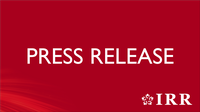
The Basic Education Law Amendment (BELA) Bill will transfer even more power over education from parents to government, despite the state’s mass education failures, according to submission to Parliament in which the Institute of Race Relations (IRR) warns against “damaging” proposed amendments in the draft law.
The BELA Bill submission deadline was the eve of Youth Day, meaning only 30 days were allowed for public comment. This is too short to respect the constitutional spirit of public participation and may explain why there is relatively low public awareness about the BELA Bill, despite its dangers.
Youth Day should be a reminder to the public that one of the apartheid government’s cardinal sins was to radically transform schools from places of learning as determined by parents into instruments of social engineering as determined by Pretoria. This had devastating outcomes, recorded and communicated by the IRR at the time.
Improvements to public education took place during the fall of apartheid and the transition into all-race democracy. Moreover, South Africa spends 6.7% of GDP on education (one of the highest proportions in the world). However, outcomes in literacy and numeracy have declined once more since the mid-2000s to abysmal levels.
Consider the 2009 grade 1 class, out of which less than 5% passed mathematics at matric level twelve years later. Consider that only about 20% of grade 4s today are able to read. Public-school failure is not just academic, as most youth are now unemployed and destitute.
The BELA Bill upholds the primary source of this sorry state, the government, and grants it more power. Specifically the BELA Bill will allow provincial government officials to override elected school governing bodies in the name of “the needs, in general, of the broader community”.
This means that government officials who have already demonstrably failed “the broader community” will be allowed to shift the nation’s burden onto the few schools, especially Model C schools, that still work because of parent-driven oversight and investment.
The number of public schools has shrunk by 3 785 in the last two decades, while the pupil population has grown by 900 000 over the same period. This too creates a “broader community” need that can be shifted from corrupt officials onto the few remaining decent public schools by forcing them to expand or erase their size limits.
Dr Anthea Jeffery, IRR Head of Policy, also warns that government officials “could in time use the BELA Bill to demand strict demographic representivity among school pupils in every school, with the maximum permitted representation for minorities set at 4% for ‘whites’, 7.5% for so-called ‘coloureds’, and 1.5% for Indians”, since strict race targeting is considered to be a community interest in policy documents of the ANC as well as employment policies in parts of the public sector.
The negative impact for coloured people in the Western Cape, where regional demographics differ substantially from national ones, could be particularly severe. The same would apply to Indian people in KwaZulu-Natal.
Dr Jeffery further warns that the BELA Bill “will probably be used primarily to compel the country’s remaining 1 260 single medium Afrikaans schools to start teaching in English as well”.
This would be harmful and unconstitutional to those schools, since there is a legal duty to preserve effective single-medium schools that operate in any official language, and “little more than a drop in an ocean of need” of English-speakers, since Afrikaans schools make up only 5.5% of the country’s total.
Said Gabriel Crouse, IRR Head of Campaigns: “The BELA Bill is drafted as if parents are the problem and more government social engineering is the solution. If Youth Day means anything it should mean that we never repeat that mistake ever again.”
* Afrikaans-language media are requested to retain the acronym ‘IRR’, rather than using ‘IRV’.
Media contact: Gabriel Crouse, IRR Head of Campaigns – 082 510 0360; gabriel@irr.org.za
Media enquiries: Michael Morris Tel: 066 302 1968 Email: michael@irr.org.za
 LETTER | Rethinking BEE premiums could unlock billions for growth - Business Day
Feb 19, 2026
LETTER | Rethinking BEE premiums could unlock billions for growth - Business Day
Feb 19, 2026
 IRR’s 2026 Budget tips for Minister Godongwana
Feb 19, 2026
IRR’s 2026 Budget tips for Minister Godongwana
Feb 19, 2026
 Corruption-busting must begin with next week’s Budget – IRR
Feb 18, 2026
Corruption-busting must begin with next week’s Budget – IRR
Feb 18, 2026
 Hold Ramaphosa to account for his SONA admissions of failure, IRR urges MPs
Feb 17, 2026
Hold Ramaphosa to account for his SONA admissions of failure, IRR urges MPs
Feb 17, 2026
 Corrigan pt. II: FMD crisis — How did we get to this point? - Biznews
Feb 16, 2026
Corrigan pt. II: FMD crisis — How did we get to this point? - Biznews
Feb 16, 2026

 LETTER | Rethinking BEE premiums could unlock billions for growth - Business Day
Feb 19, 2026
LETTER | Rethinking BEE premiums could unlock billions for growth - Business Day
Feb 19, 2026
 IRR’s 2026 Budget tips for Minister Godongwana
Feb 19, 2026
IRR’s 2026 Budget tips for Minister Godongwana
Feb 19, 2026
 Corruption-busting must begin with next week’s Budget – IRR
Feb 18, 2026
Corruption-busting must begin with next week’s Budget – IRR
Feb 18, 2026
 Hold Ramaphosa to account for his SONA admissions of failure, IRR urges MPs
Feb 17, 2026
Hold Ramaphosa to account for his SONA admissions of failure, IRR urges MPs
Feb 17, 2026
 Corrigan pt. II: FMD crisis — How did we get to this point? - Biznews
Feb 16, 2026
Corrigan pt. II: FMD crisis — How did we get to this point? - Biznews
Feb 16, 2026